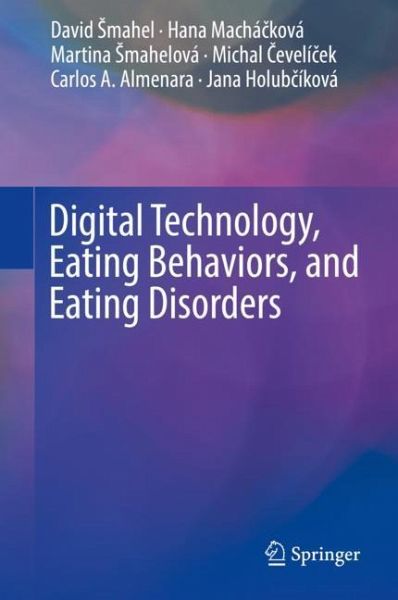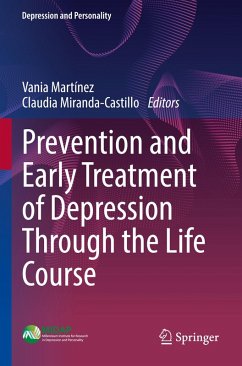
Digital Technology, Eating Behaviors, and Eating Disorders
Versandkostenfrei!
Versandfertig in 6-10 Tagen
38,99 €
inkl. MwSt.
Weitere Ausgaben:

PAYBACK Punkte
19 °P sammeln!
"After decades of research on dysfunctional eating and lack of physical activity, research attention has finally turned to the role of digital technology in eating behaviors and eating disorders. This timely volume offers a thoughtful and wide collection of chapters discussing the possible effects of digital technologies, from those enhancing healthy eating behaviors to those that encourage disordered eating. Highly recommended for both professionals and scholars." Prof. Giuseppe Riva, Università Cattolica del Sacro Cuore, Milan, Italy.This book examines in depth the multifaceted roles of dig...
"After decades of research on dysfunctional eating and lack of physical activity, research attention has finally turned to the role of digital technology in eating behaviors and eating disorders. This timely volume offers a thoughtful and wide collection of chapters discussing the possible effects of digital technologies, from those enhancing healthy eating behaviors to those that encourage disordered eating. Highly recommended for both professionals and scholars."
Prof. Giuseppe Riva, Università Cattolica del Sacro Cuore, Milan, Italy.
This book examines in depth the multifaceted roles of digital technologies in the eating behaviors and eating disorders. Coverage reflects a broad theoretical and empirical knowledge of current trends in digital technology use in health behaviors, and their risks and benefits affecting wellbeing, with focus on eating behaviors and eating disorders. The authors use both qualitative and quantitative data to focus on the digital lived experiences of people and their eating related behaviors.
Among the topics covered:
The quality of eating-oriented information online
Technology, body image, and disordered eating
Eating-oriented online groups
Using mobile technology in eating behaviors
Usage of digital technology among people with eating disorders
What healthcare professionals should know about digital technologies and eating disorders
Technology-based prevention and treatment programs for eating disorders
A potential source of discussion and debate in various fields across the social sciences, the health sciences, and psychology, Digital Technology, Eating Behaviors, and Eating Disorders will be especially useful to students, academics, researchers, and professionals working in the fields of eating behaviors and eating disorders.
Prof. Giuseppe Riva, Università Cattolica del Sacro Cuore, Milan, Italy.
This book examines in depth the multifaceted roles of digital technologies in the eating behaviors and eating disorders. Coverage reflects a broad theoretical and empirical knowledge of current trends in digital technology use in health behaviors, and their risks and benefits affecting wellbeing, with focus on eating behaviors and eating disorders. The authors use both qualitative and quantitative data to focus on the digital lived experiences of people and their eating related behaviors.
Among the topics covered:
The quality of eating-oriented information online
Technology, body image, and disordered eating
Eating-oriented online groups
Using mobile technology in eating behaviors
Usage of digital technology among people with eating disorders
What healthcare professionals should know about digital technologies and eating disorders
Technology-based prevention and treatment programs for eating disorders
A potential source of discussion and debate in various fields across the social sciences, the health sciences, and psychology, Digital Technology, Eating Behaviors, and Eating Disorders will be especially useful to students, academics, researchers, and professionals working in the fields of eating behaviors and eating disorders.














